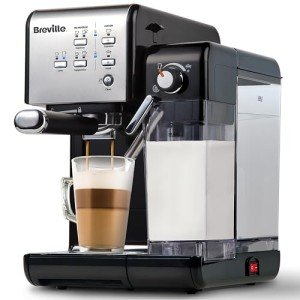The Rise of Home Espresso Machines: A Comprehensive Guide
As coffee lovers continue to look for fresh and delicious brews in your home, the appeal of home espresso machines has actually surged over the last few years. No longer just the domain of coffee shops and coffeehouse, these machines empower people to craft barista-quality espresso beverages from the comfort of their kitchen areas. This short article will explore the numerous types of home espresso machines, their features, and considerations for selecting the right one. In addition, it will provide a selection of FAQs to help prospective purchasers make notified decisions.
Kinds Of Home Espresso Machines
Home espresso machines can be classified into numerous categories based on their systems and user-friendliness. Each type has its distinct functions, pros, and cons.
| Type | Description | Pros | Cons |
|---|---|---|---|
| Manual Espresso Machines | Requires the user to manually manage the brewing process, including strategies like pulling a lever to produce pressure. | - Complete control over brewing procedure - Compact style | - Requires skill and practice - Time-consuming |
| Semi-Automatic Machines | Machine automates water flow and pressure, however the user still controls the dosing and duration of the brewing process. | - Balance of automation and control - Versatile | - Learning curve for perfecting techniques |
| Fully Automatic Machines | Automates the entire brewing process, from grinding to brewing, typically with programmable settings for customized drinks. | - Extremely user-friendly - Quick and practical | - Less control over the brewing process - Higher cost point |
| Capsule or Pod Machines | Uses pre-packaged espresso capsules or pods to create coffee quickly and easily. | - Extremely easy to use - Minimal cleanup | - Limited flavor variety - More expensive per cup than ground coffee |
| Super-Automatic Machines | Integrates functions of completely automatic machines with built-in grinders, enabling users to brew whole bean espresso and milk-based drinks with one touch. | - All-in-one benefit - Ideal for milk-based beverages | - Often the most costly - Can be bulky |
Functions to Consider
When selecting a home espresso machine, prospective buyers need to consider the following functions to guarantee they choose a machine that fulfills their needs:
Grinder Type:
- Built-in mills can provide fresher grounds but may need more upkeep.
- Separate grinders enable more personalization of grind size.
Pressure:
- Look for machines that produce a minimum of nine bars of pressure, which is ideal for developing espresso.
Water Temperature Control:
- Machines with adjustable temperature settings permit for much better extraction of flavor from beans.
Milk Frothing Options:
- Consider whether you want a manual steam wand for frothing or an automatic milk frother for convenience.
Ease of Cleaning:
- Machines with detachable parts and self-cleaning functions significantly decrease clean-up time.
Size and Design:
- Ensure the machine fits easily in your kitchen and lines up with your visual choices.
Budget:
- Set a budget before starting your search, as rates can vary substantially from affordable models to high-end machines.
Advantages of Home Espresso Machines
Owning a home espresso machine provides various benefits:
- Cost-Effective: Over time, brewing espresso in the house can save coffee lovers cash compared to frequent coffee shop sees.
- Modification: Users can try out various beans, grind sizes, and developing strategies to find their best cup.
- Convenience: The capability to brew espresso any time gets rid of the requirement to go out to a café, particularly useful throughout late nights or early mornings.
- Quality assurance: With a home machine, individuals have complete control over the quality of ingredients and developing procedures.
Disadvantages of Home Espresso Machines
However, there are some disadvantages to think about:
- Initial Investment: High-quality espresso machines can be pricey, requiring a significant upfront investment.
- Learning Curve: Mastering the art of espresso brewing can take some time and practice, which might be frightening for novices.
- Upkeep: Like any home appliance, espresso machines need regular cleansing and maintenance to guarantee optimum efficiency.
FAQs
1. What is the best type of home espresso machine for novices?
Answer: For novices, a semi-automatic machine is often advised as it uses a balance in between control and automation, enabling you to find out the basics without overwhelming complexity.
2. Just how much should I invest on a home espresso machine?
Response: Entry-level machines can start around ₤ 100 to ₤ 300, while higher-end models can range from ₤ 500 to over ₤ 2000. Bean To Cup Espresso Machines to set a budget based upon your expected use and wanted functions.
3. Do I need a different grinder?
Answer: While some espresso machines come with built-in mills, buying a different grinder enables greater customization and makes sure much better quality premises.
4. How often should I clean my espresso machine?
Answer: Cleaning frequency can differ by machine type, but it's normally advised to clean the machine after each use and perform deep cleanings weekly or regular monthly, depending upon usage.
5. Can I make milk-based drinks with any espresso machine?
Answer: Not all machines include milk frothing capabilities. If you enjoy drinks like lattes or cappuccinos, search for a machine with a steam wand or automatic frother.
Home espresso machines are transforming the way coffee aficionados enjoy their beloved brews. With various types and advanced functions offered in the market, there is something for everyone. Whether it's the happiness of producing distinct dishes or simply enjoying the ideal shot of espresso, investing in a home espresso machine can improve both the coffee-drinking experience and the lifestyle for coffee enthusiasts everywhere. Just like any financial investment, it is important to weigh the advantages versus the possible disadvantages and select a machine that flawlessly fits both your way of life and choices.

